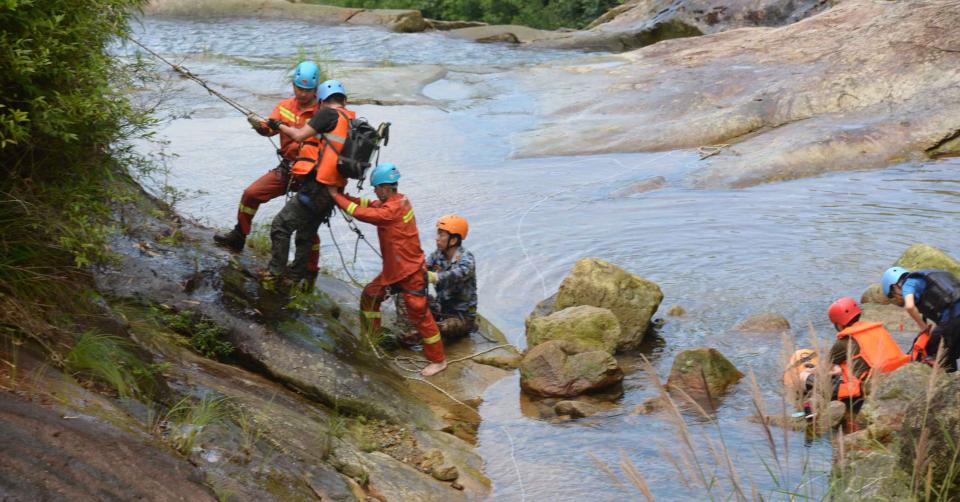A spate of incidents over the recent Chinese National Day holidays involving travelers who had to be rescued from remote areas has triggered discussion over who should be responsible for the rescue efforts.
As more Chinese people organize their own backpacking trips, incidents over the "super" Golden Week holiday included white water rafters being rescued from a flooded canyon in Hainan Province, police retrieving three ill hikers from a panda reserve in Sichuan Province and another hiker lost overnight on a mountain near Lijiang in Yunnan Province, Chinese media reported.
These cases are far from new. In 2010, a police officer lost his life rescuing a group of students from Shanghai's Fudan University who got lost in the Huangshan Mountains.
Yet at present, most netizens have an indifferent attitude toward such irrational independent travelers, according to an article on news site
View.news.qq.com.
Some online voices noted that ill-prepared tourists who apparently do not cherish life and only pursue adventures should not be rescued. Zhang Debi, a commentator of the news article, argued there is no need to discuss whether rescue teams should save people or not, because according to China’s Tourism Law or Fire Protection Law, rescuing trapped tourists is the responsibility and obligation of the government. Authorities should start rescue operations as soon as they are aware of an incident.
Zhang pointed out that while professional adventurers can be respected, amateur backpackers should travel where they can anticipate risks or be in control of them.
This March, Anhui Province passed a revised tourism regulation, that went into effect on June 1. It states that tourists are prohibited from undeveloped wilderness areas without authorization, and all violators should bear the cost of any rescue expenses.
Forcing backpackers to pay all their rescue fees would generate a social consensus that travelers should take responsibility for their own risk-taking behaviors. Such regulations would also drive amateurs to seek out more information before engaging in potentially dangerous outdoor activities, Zhang said.

 Old Version
Old Version